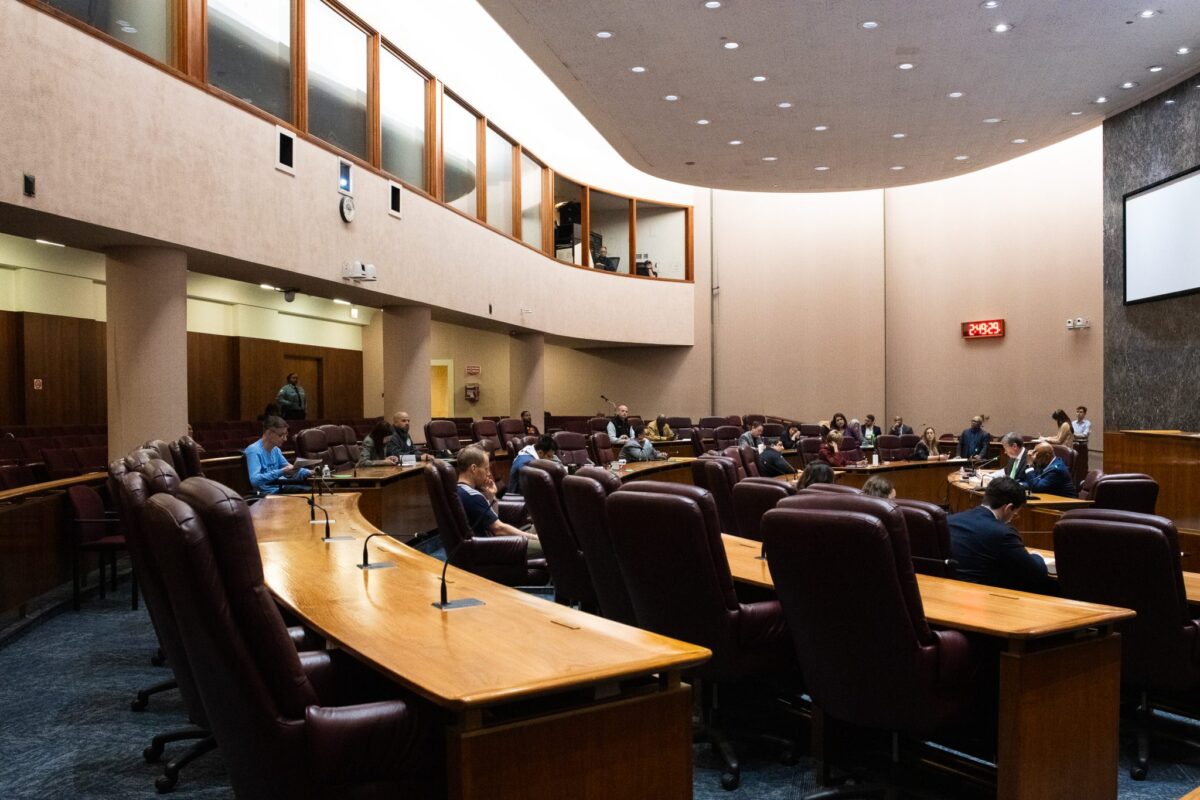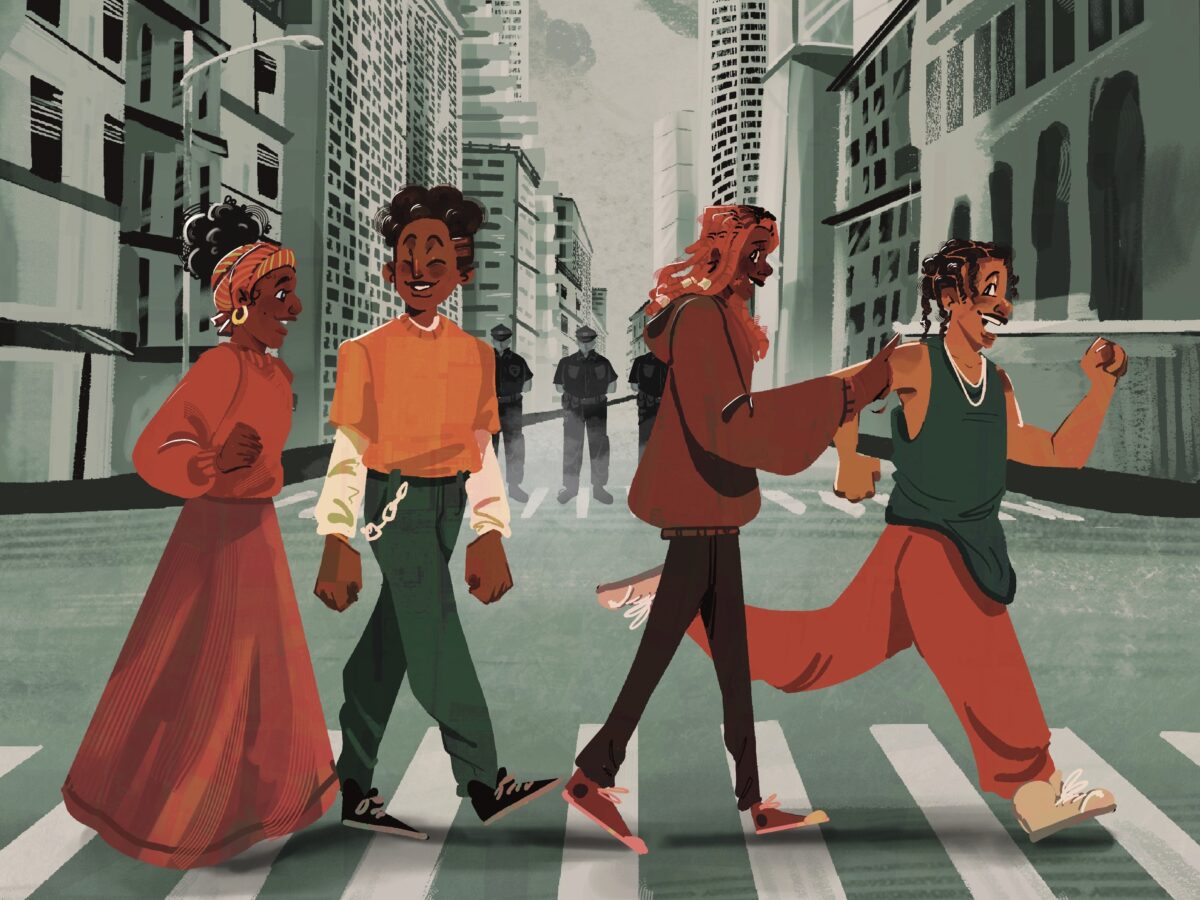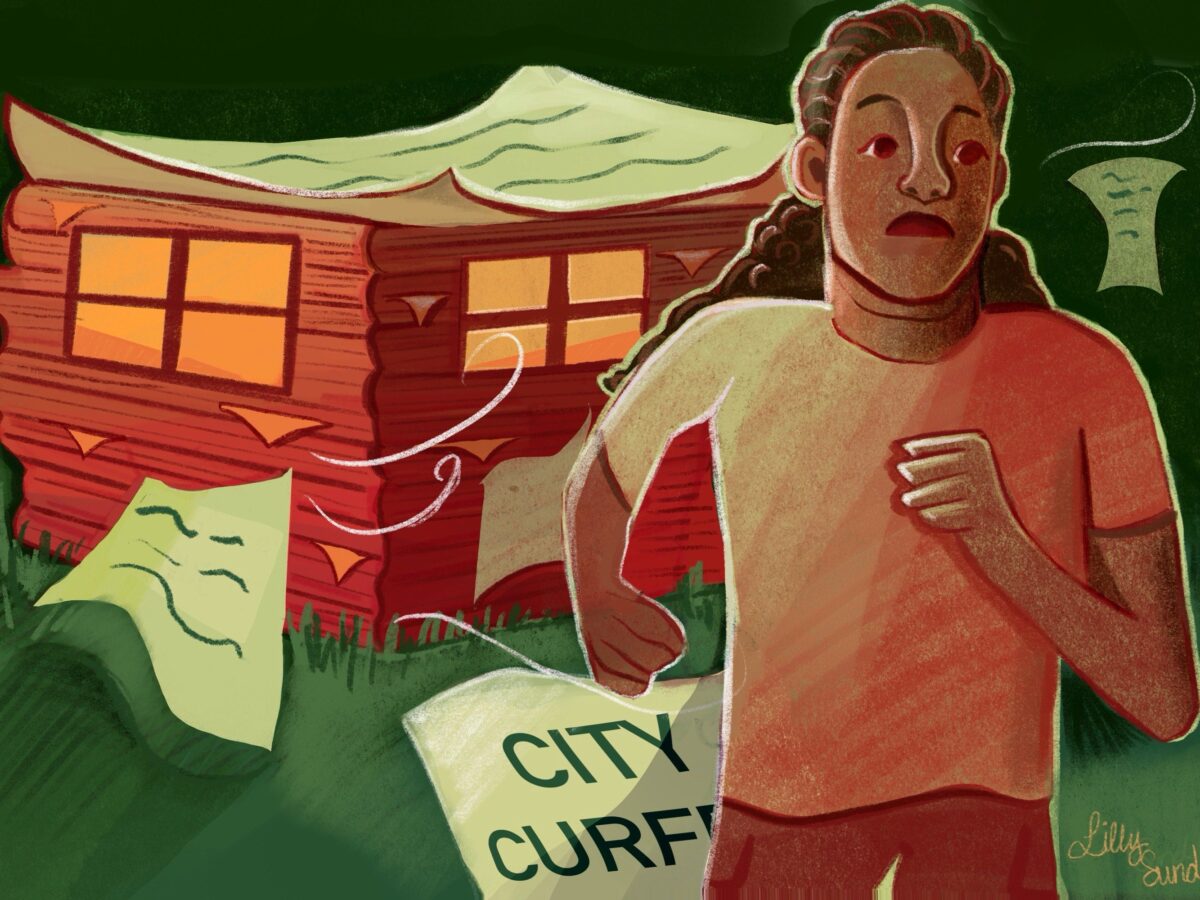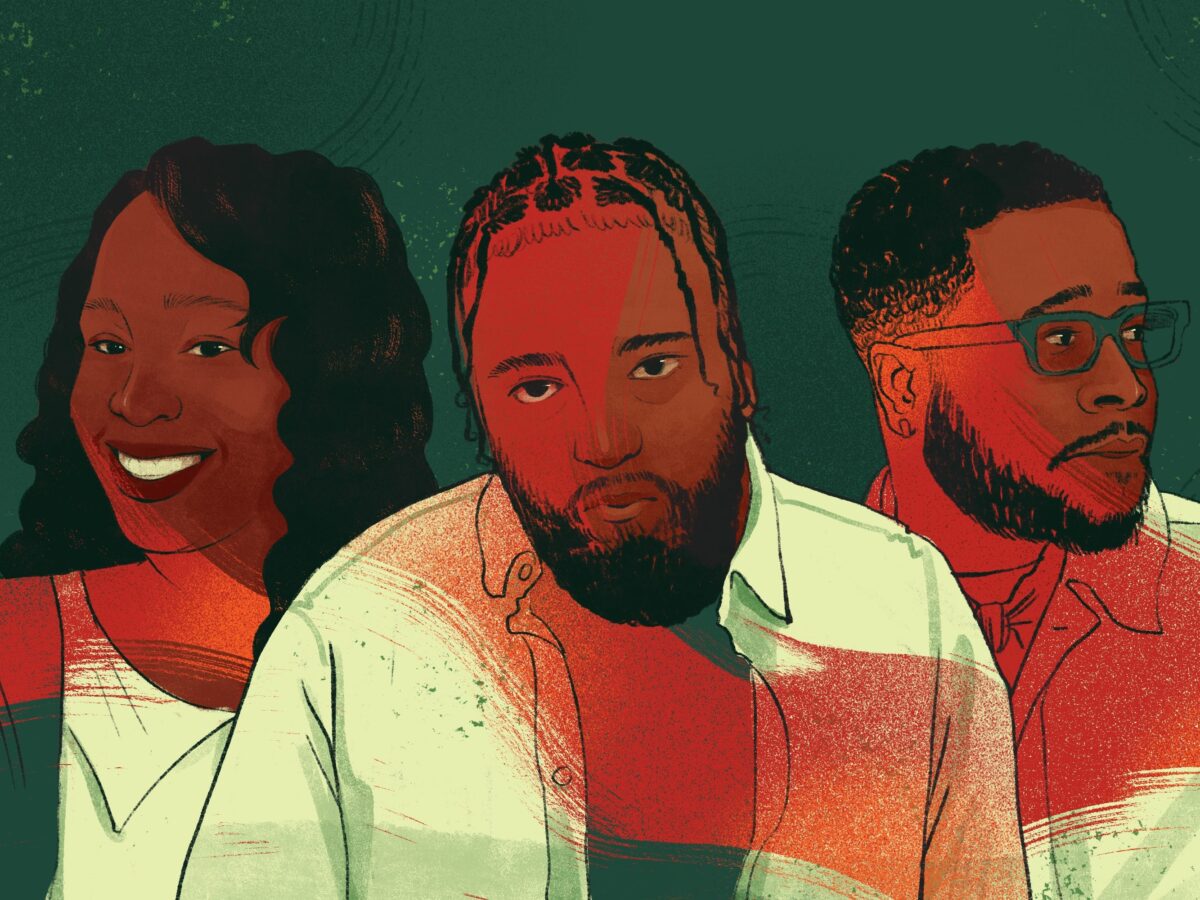This story was originally published by The TRiiBE.
A last-minute update to an ordinance that would give the Chicago Police superintendent sole authority to enact a “snap curfew” with a 30-minute notice passed out of committee today with a 10-7 vote. The Chicago City Council is expected to have the final say during a scheduled meeting on Wednesday.
There’s speculation that the vote may be deferred and published, which is a procedural maneuver that would move the vote to June, Ald. Jessie Fuentes (26th Ward) told The TRiiBE.
“We probably won’t take a vote until June,” Fuentes said. “When there’s big legislation that has good opposition to it, it’s usually deferred and published.”
Eighteen alders sit on the council’s Committee on Public Safety. Alders Chris Taliaferro (29th Ward) and Maria Hadden (49th Ward) were absent.
| “YES” VOTES | “NO” VOTES |
| Brian Hopkins (2nd Ward) | Desmon Yancy (5th Ward) |
| Peter Chico (10th Ward) | Jeylu Gutierrez (14th Ward) |
| Raymond Lopez (15th Ward) | Byron Sigcho Lopez (25th Ward) |
| Derrick Curtis (18th Ward) | Jessie Fuentes (26th Ward) |
| Silvana Tabares (23rd Ward) | Andre Vasquez (40th) |
| Debra Silverstein (50th Ward) | Matt Martin (47th Ward) |
| Samantha Nugent (39th Ward)* | Leni Manaa-Hoppenworth (48th Ward) |
| Timothy Knudsen (43rd Ward) | |
| Jim Gardiner (45th Ward) | |
| Debra Silverstein (50th Ward) |
*Nugent is not a member of the public safety committee, but as President Pro Tempore of the City Council she has the power to vote on all legislative items.
Although the ordinance is being described as a proactive measure to curb teen “trends,” the legislation’s language also loosely defines mass gatherings as when 20 or more people are gathered in a public space in a manner that would result in “substantial harm to public health, safety or welfare.”
Before today’s committee meeting, Hopkins, who chairs the public safety committee, scrapped previous language from an older version that stated that the Deputy Mayor for Community Safety would need to jointly sign off on enacting a curfew with the Chicago Police Department (CPD) Superintendent.
Both Ald. Pat Dowell (3rd Ward) and Ald. Jason Ervin (28th Ward), also co-sponsors of the proposal, were present at the meeting but did not vote. Dowell, a Johnson finance committee chair appointee, backs the update. Ervin, a Johnson ally, expressed opposition to it because he said it’s far-reaching and shifts more power to the CPD.
Ervin added that the new language removes particular checks and balances, like the word “joint,” meaning that there’s no longer joint decision-making power. On Twitter, Ald. Bill Conway (34th Ward) applauded Hopkins for removing “mayoral veto” power.
Ervin said the new language cuts out the collaborative spirit part of the previous version.
“Ultimately, this goes even beyond where we started at lowering the curfew to 8:00 p.m., and again, this gives the police department total discretion as to when and how this will be administered,” Ervin told the committee. “Unfortunately, in that set of circumstances, I cannot support this ordinance as it stands today.”
Hopkins, the proposal’s lead sponsor and committee chair, said the latest iteration does include collaboration with the mayor’s office, but argues that the CPD superintendent should have the final say in declaring a curfew. Hopkins told reporters the mayor’s community safety office will still advise on the decision to call a curfew.
“The sole reason for clarifying the language was simply because, on the one hand, you have the city’s chief law enforcement officer, the superintendent, who has full discretion to use his judgment when it comes to making law enforcement decisions,” Hopkins told reporters following the vote. “On the other hand, you have a civilian position, the deputy mayor, who does not even work under the police department. So to give that person full police powers in an ordinance like this was somewhat problematic.”
Read our series “curfew City,” produced in partnership with the triibe
‘There Are No Places For Us To Just Be Free’
During an April 30 public safety committee meeting, Lopez, Tabares, and Conway expressed concern with having a proposal that allows the deputy mayor of community safety to be part of that decision-making process.
“It had to be clear at the end of the day, the final responsibility for the decision must rest with the chief law enforcement officer,” Hopkins said.
Also included in the latest proposal are quarterly public meetings, where the police superintendent and deputy mayor of community safety would provide public safety committee members with a report laying out each time “snap” curfews are declared during a given year.
There were questions from a public commenter about why a third iteration of the proposal was introduced hours before today’s committee hearing. Fuentes also asked whether the city’s Law Department was consulted. A city Law Department representative said they didn’t have enough time to review it.
Yancy asked Hopkins if Community Commission for Public Safety and Accountability (CCPSA) President Anthony Driver had been consulted about the proposed curfew ordinance since the April committee meeting.
Hopkins said he had a brief conversation with Driver. The TRiiBE reached out to get a comment from Driver, but he wasn’t available.
“I’m not sure if this is designed to protect property or keep young people safe, while I understand the need that exists, given the circumstances around the tension around teen ‘takeovers,’” Yancy said during the committee meeting.
Since Hopkins first presented a revised youth curfew ordinance in April, a diverse group of community-based organizations had voiced opposition to the proposed “snap curfew” ordinance. These groups, along with legal advocates, have questioned the potential for First Amendment violations. Some Black teens have also expressed that the ordinance could give police another reason to racially profile them.
“You know, being a young Black man coming from where I come from, it’s just, like, the police don’t know I be in rooms with the mayor,” GoodKids MadCity organizer James Robinson, 21, said at a Tuesday morning media briefing with Mayor Brandon Johnson. Robinson was one of three young people sitting next to Johnson discussing the need for more investment into youth jobs, opportunities and GKMC’s Peacekeeper program.
“They just see a young Black man,” Robinson continued. The TRiiBE asked how he feels the city and police perceive him when he’s out downtown or in his neighborhoods with his friends. “The police, when they run into me, they were trying to find [a] gun, but what I need a gun for? I’m just trying to return to my community and keep youth safe.”
Tonia Hill is a multimedia reporter for The TRiiBE.
Do Curfews Make Us Safer?
Academic research has found mixed results.
What Happened to Chicago’s Third Spaces?
Teen third spaces were once the epicenter of Chicago’s music and dance trends.
What’s It Like to Raise Teens in 2025?
Three parents share their thoughts on teen takeovers, the curfew, and more.





